Matthew, founder of Ghost Wares, is happy at his current size, but the opportunity to get bigger is pretty tempting...
Matthew was looking for a career change from architecture. After a weekend pottery class he figured out a small ceramics business could be the change he was looking for. And so Ghost Wares was born.
Small biz quiz
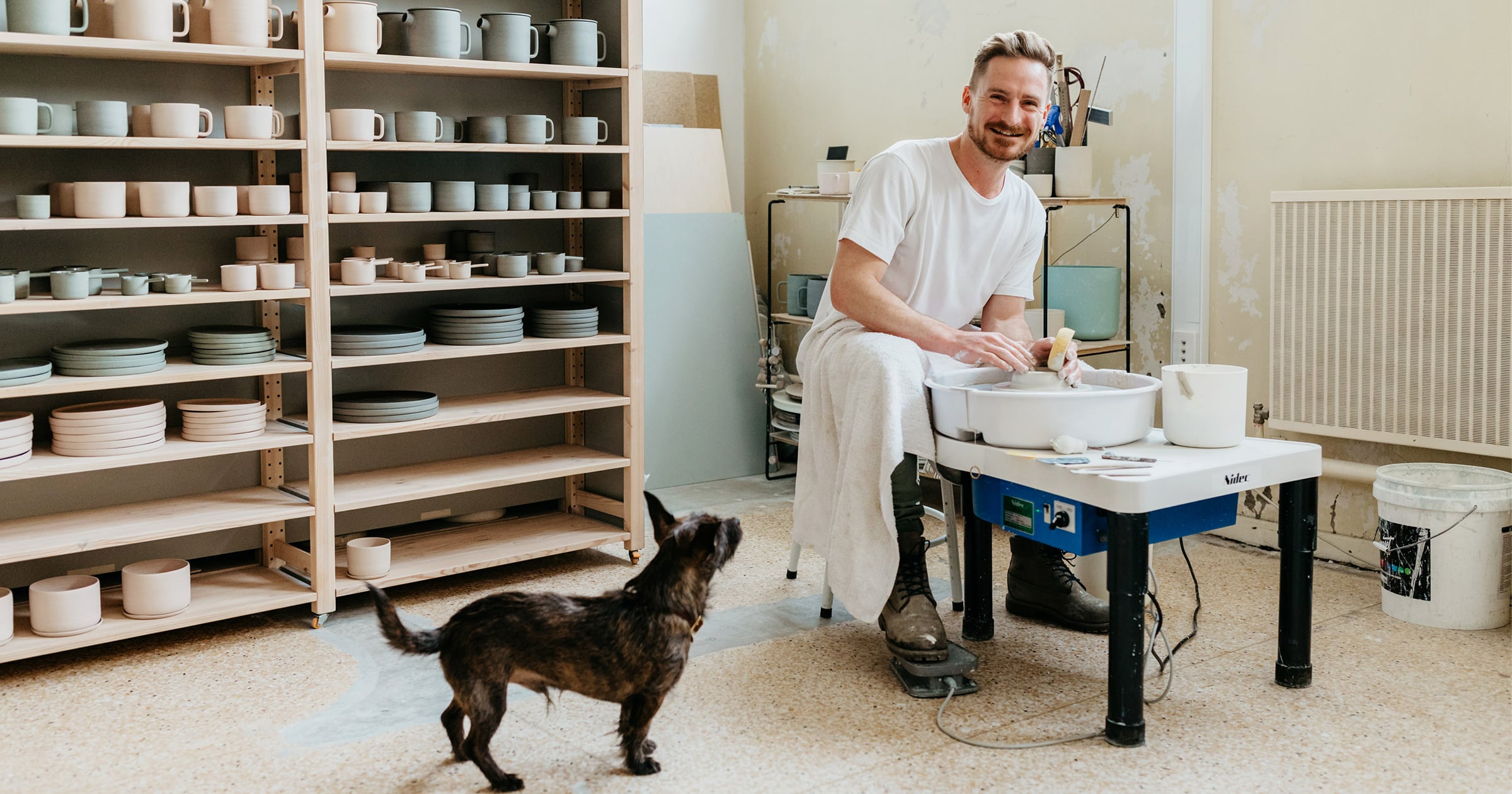
Name and Location
Matthew from Abbotsford, Melbourne
What does your business do, in a nutshell?
I design and make ceramics, mainly tableware and vases at this stage. I mostly use stoneware clay, which is really strong and nice to work with.
How long have you been operating?
About three years full time. I’d been operating out of my backyard for a long time, but I just moved into this workspace about a year ago.
How and why did you start up Ghost Wares?
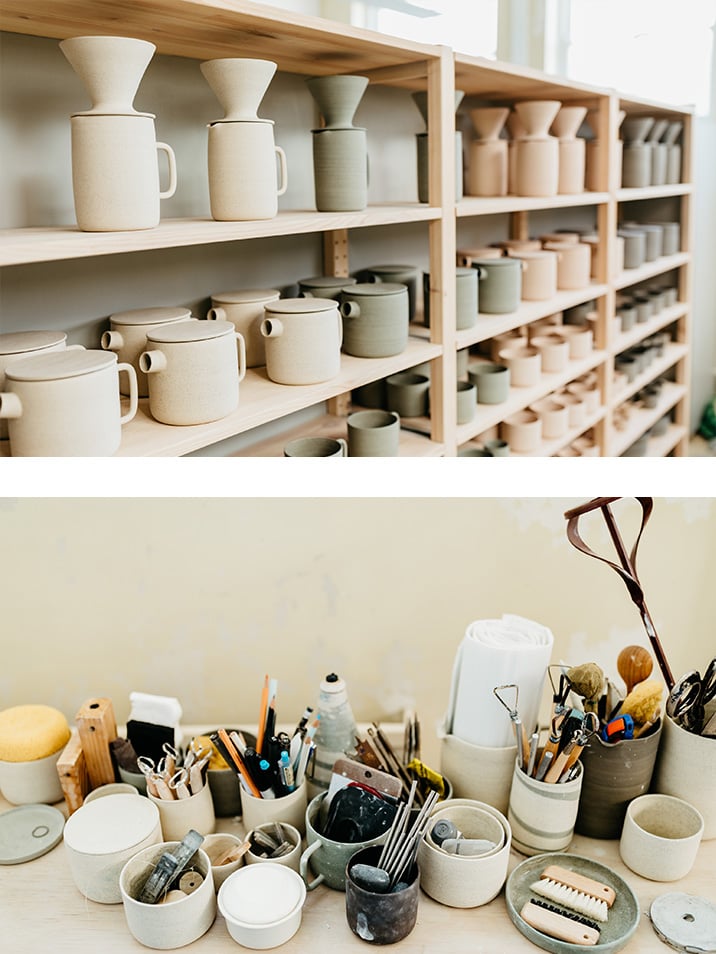
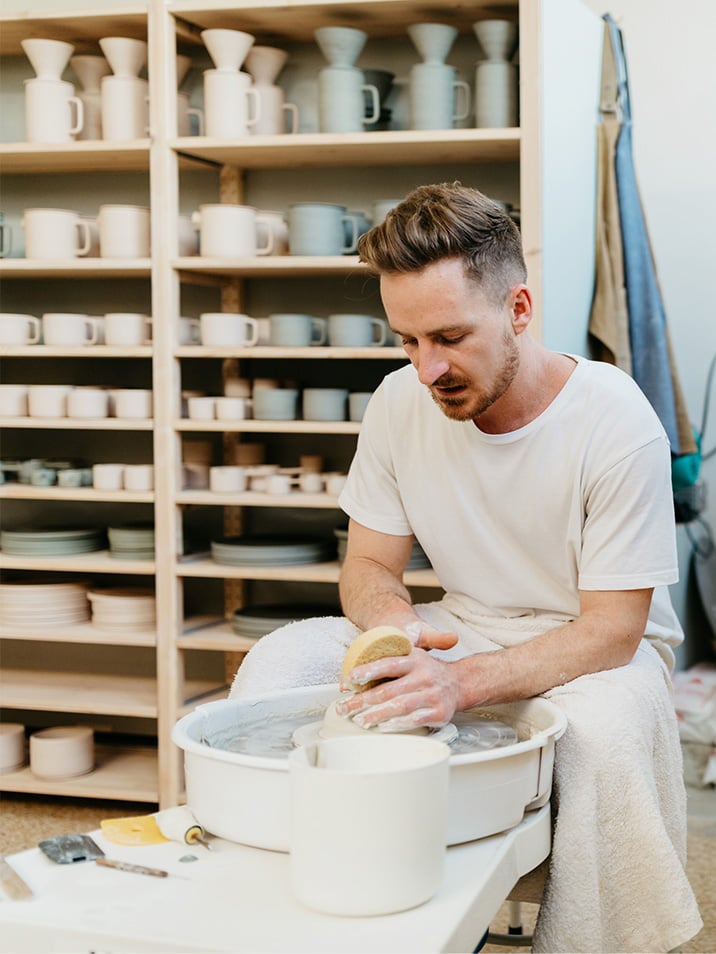
I used to work in architecture, which was an interesting job but eventually I felt like I needed a change.
At the time I’d taken up pottery as a hobby and really loved it. So I started looking really seriously into how I could start a pottery business. I used my architectural tools, like 3D modelling and rendering, to test ideas. I wanted to make sure I had a good product that people would be interested in.
Once I worked out some designs and a bit of a business plan I quit my other job, and here I am.
Can you describe your customers?
Our customers are generally particular people and have a real attention to detail.They like clean lines and smooth shapes. One customer came in and bought one cup every Saturday for a few weeks until he had a set. He would carefully turn each one and check it for symmetry. I really like watching people build relationships with objects, there’s a real attachment there.
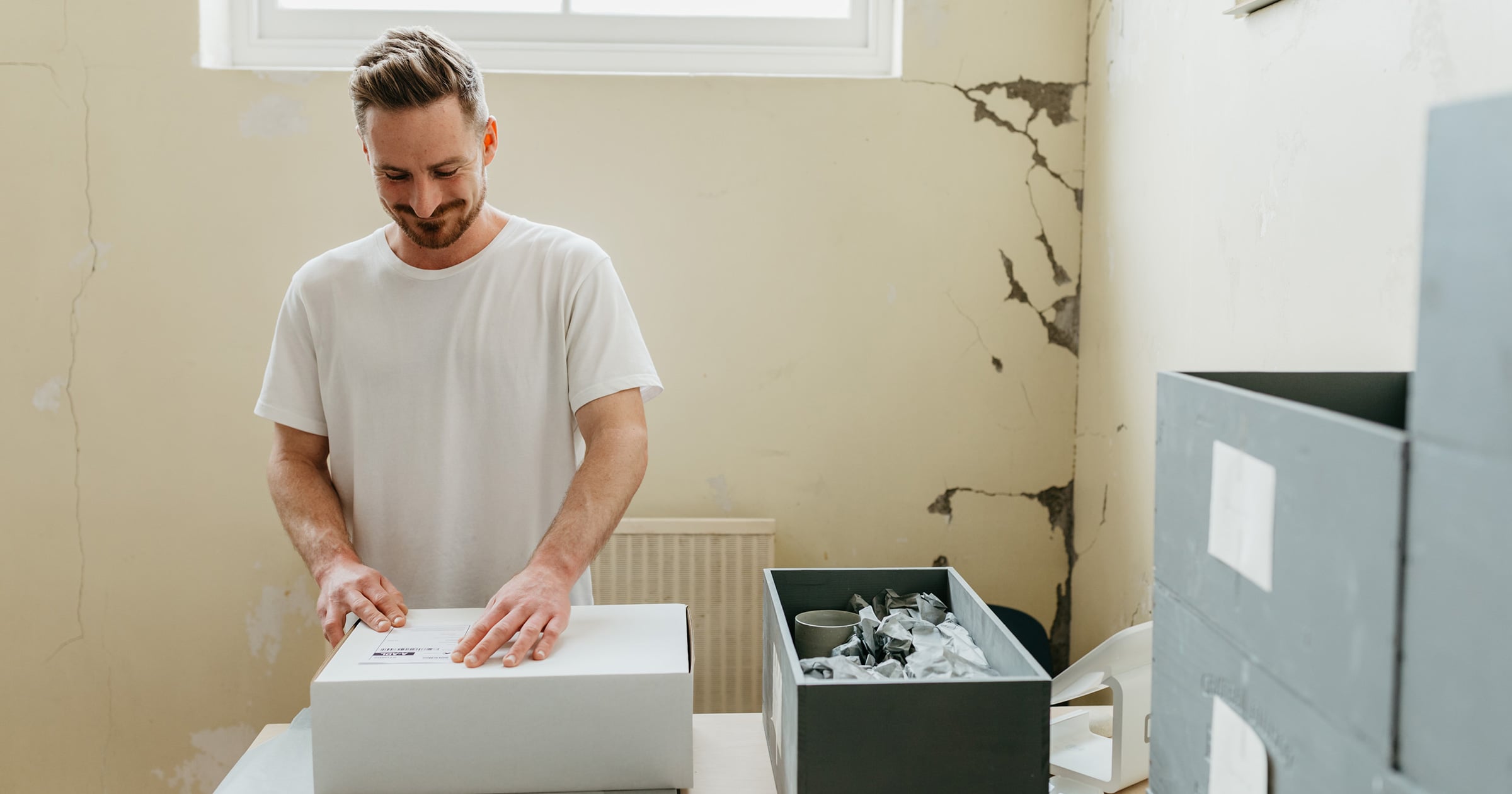
How many people do you employ?
I have a co-founder and two people who come in and help me during the week. They’re great, and they have been learning a lot about the making process, which is a big help.
Did you follow your original business plan or has it evolved?
When I started I just wanted to make things I’d want in my own home, hoping others would feel the same. From that idea a business has slowly developed.
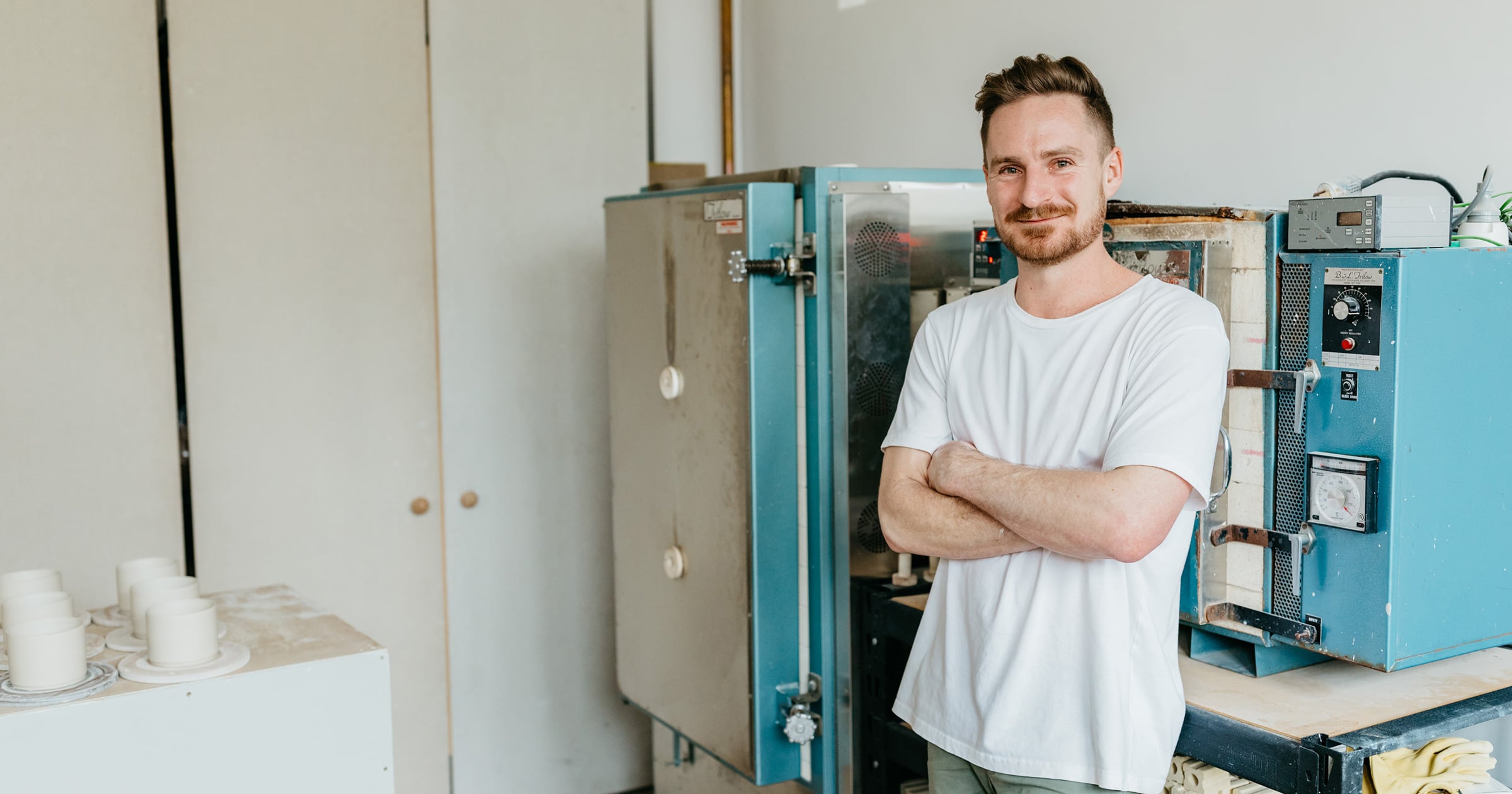
I’m a pretty risk averse person, and I take things really slowly. When things feel like they’re happening too quickly, they usually are. That’s why it’s taken a long time to slowly build from a small studio to a bigger one.
We’re going through a growth spurt now. But I’ve learned a lot about the accounting side of things and now I can look at the books and really see what they’re telling me. When I look at them now they tell me the first year was terrible, the second was okay and the third is really great. So hopefully that can continue.
What part of business do you just wish would go away?
I’m not a huge fan of thinking about money. But things that seemed daunting at the beginning, like accounting and bookkeeping, that I had no idea about, have become super satisfying.
I can get a real idea of how it's going and I can see where I'm spending my money. I might have thought it was over here on one thing, but really it’s over there on another.
That’s been really positive and a great learning curve.
Often artists aren’t that interested in business…
Yeah sometimes money is seen as a dirty word, and there’s a bit of resentment there that it matters to artists. But money enables you to build things and try new things out.
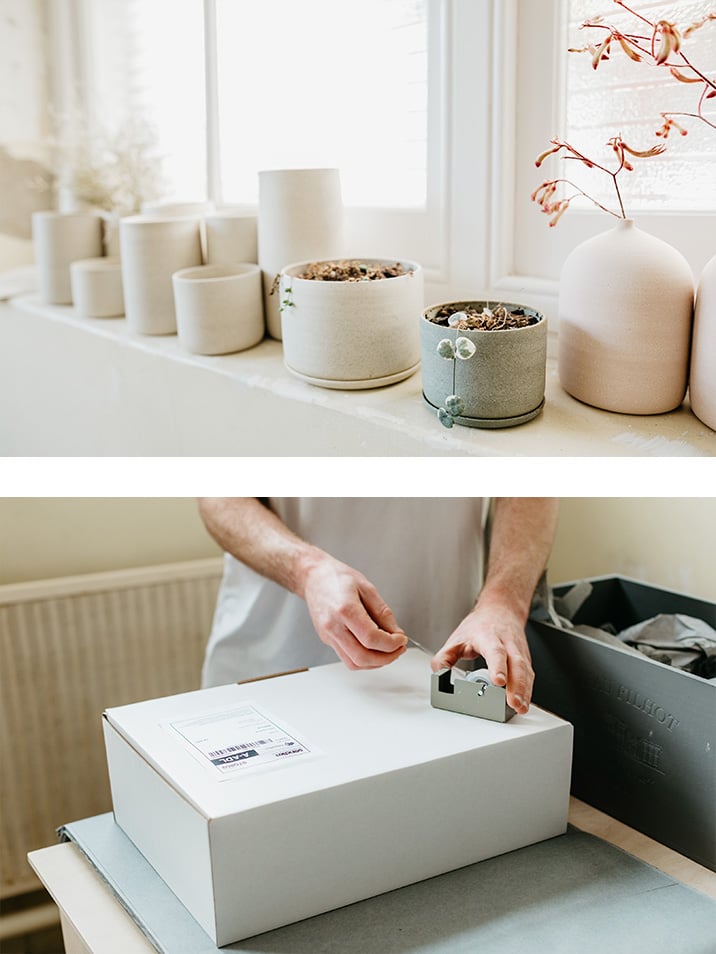
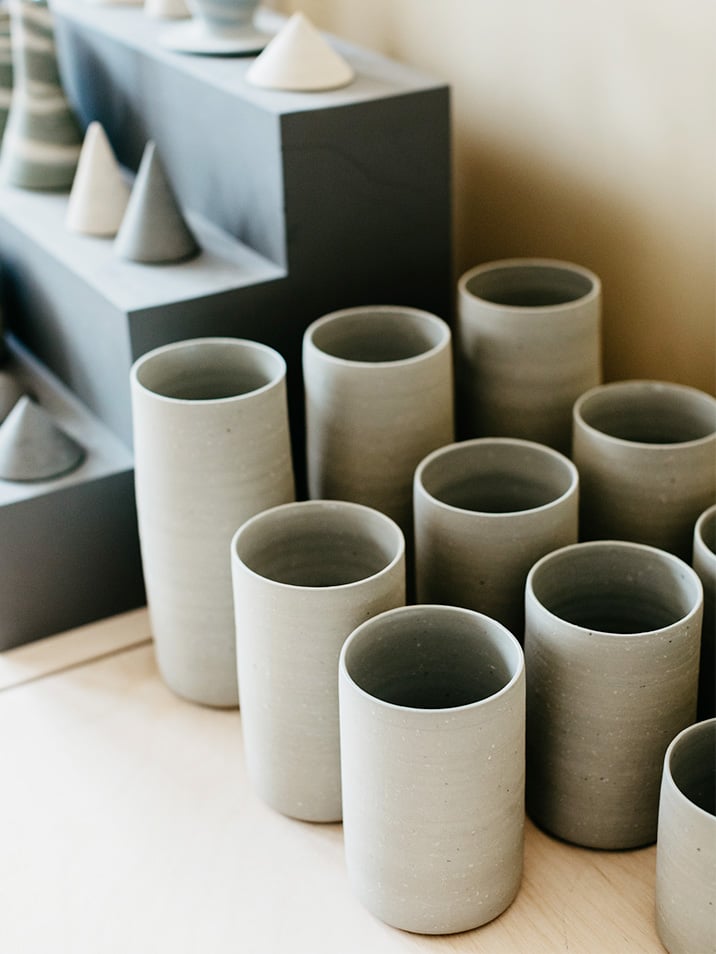
There’s a cool story about a guy in the early 1900s who invented the pyrometric cone, which melts in a kiln at just the right temperature because of the chemical compound inside. It helps ceramists gauge what’s happening inside the kiln.
The thing is, it’s not a very refined product. And when you buy one you’ve got to tidy it up yourself and make it usable. This foundation that makes these cones doesn’t bother to spend the money to actually make it perfect.
But all the money they save from not making the product that polished, they just put in a trust and give that money back to the ceramics industry for research and development.
I like thinking about money being used in ways like that to help artists get ahead. There are lots of different ways of using it, not just as profit.
Speaking of turning a profit, when did you first come out in the black? What did that feel like?
Not that long ago! I’ve never taken on any investment of any sort. I just took all my savings and invested that into the business and then money started coming out the other side.
It cost a fair bit to get started, buying kilns and sourcing materials and things. But slowly we’ve managed to begin seeing a return. It’s a good feeling, it’s a real payoff because we are working pretty hard around here.
Do you hope to expand the business or are you happy just rolling along?
I’m at a real tipping point. Maybe I’ll just stay as an efficient, small studio and play it safe and maximise that as much as I can. But when I stop and think about it, and I’m really honest, I’m really working hard at the moment and I’m making a lot of stuff, do I want to keep doing that?
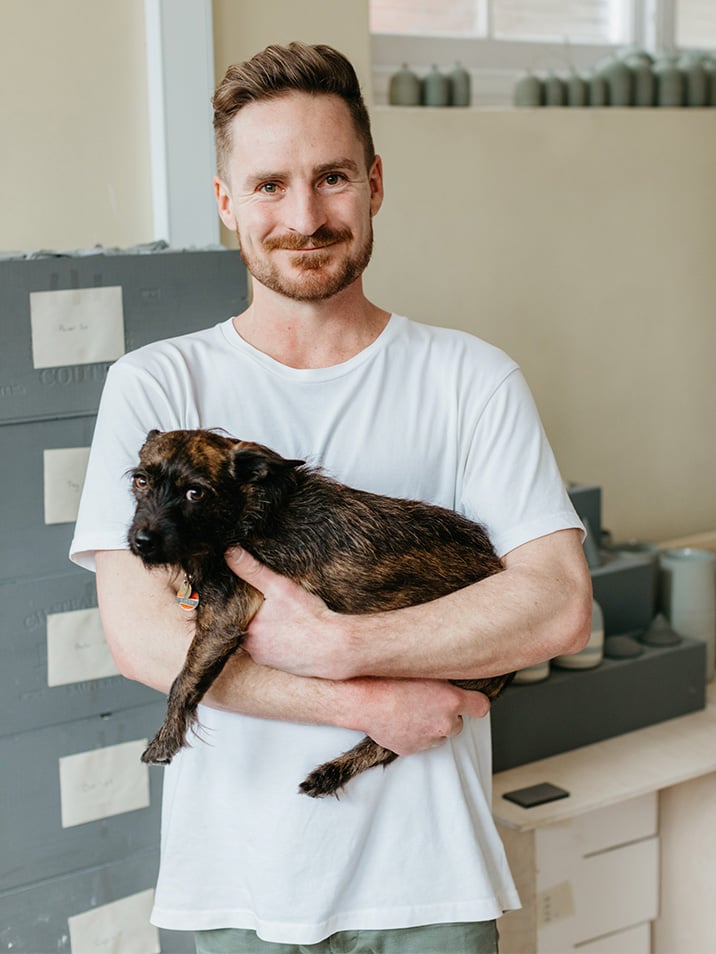
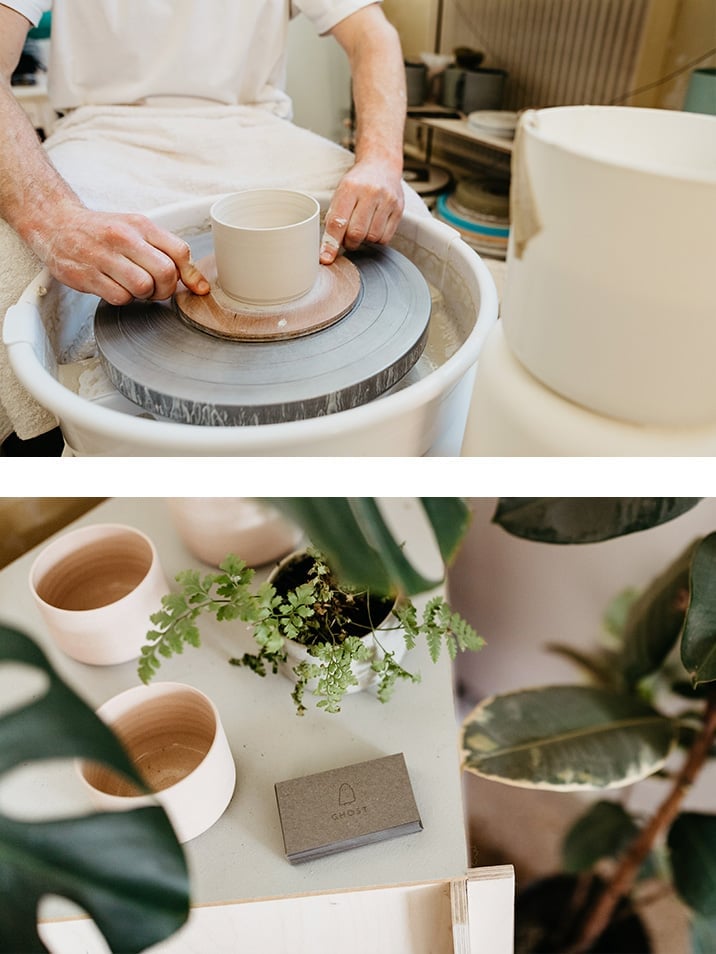
It kind of seems silly not to push things and see how much I can grow this little business. There’s a real opportunity to grow.
I really like making new things, testing and evolving. And at the moment I’m caught up in tableware, but what else could I make? There’s so much in life you can explore. If I can build a sustainable business that runs itself, I could try out some new things.
The flip side is, if I break my arm, the whole business stops. And what happens to my employees? I’m responsible for them and their income at the moment, so if I really wanted to de-risk the business, I need to be thinking about how to expand a bit more so it can run without me sometimes.
What do you like to learn about to keep your head in the game? How do you get that information?
I sometimes spend ten hours a day at the wheel making stuff. So I need to keep the verbal side of my brain occupied.
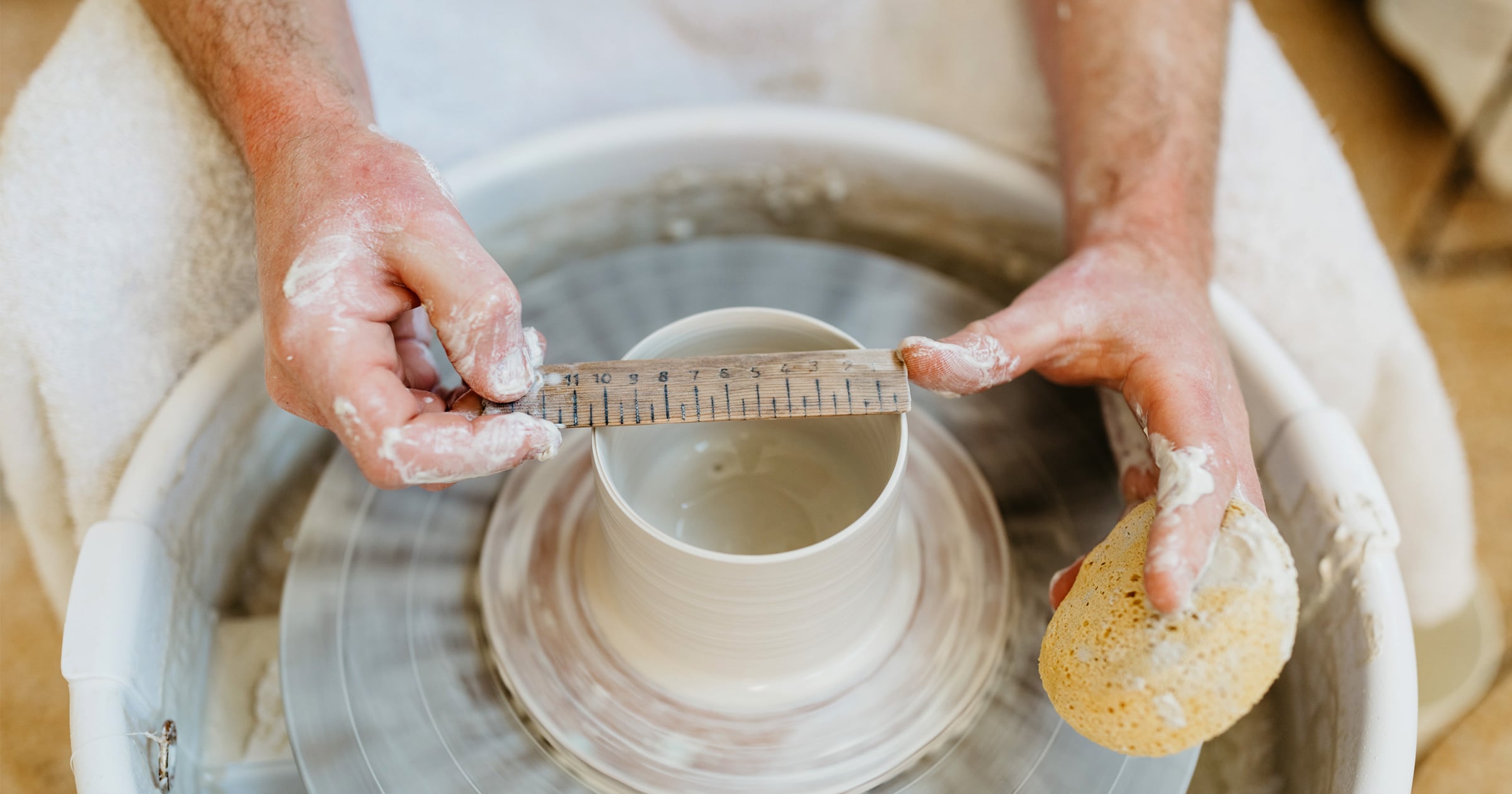
Luckily, the skills and focus I need to make stuff aren’t the same as those that retain and learn information. So I can sit here and listen to podcasts and books all day, while the other part of my brain can form and shape the clay.
I listen to some podcasts about business, but if you listen to too much of that stuff you stop thinking about your business and start thinking about someone else’s. I try and keep learning about lots of different subjects all the time.
Sendle is a smooth, easy service. I can send a minimum of one or I can send fifty things. That kind of thing helps us ticking along.
Sendle your parcels
